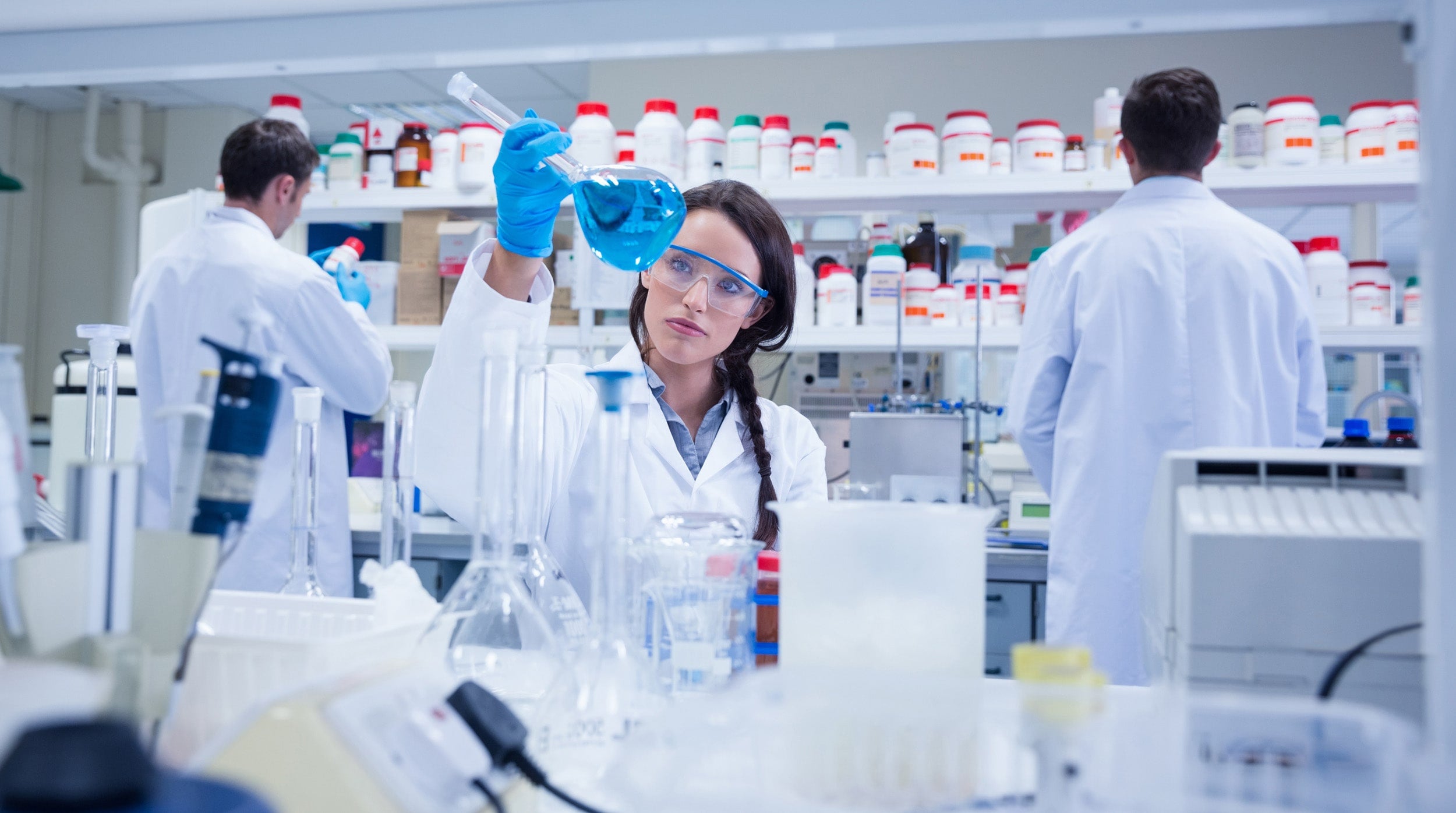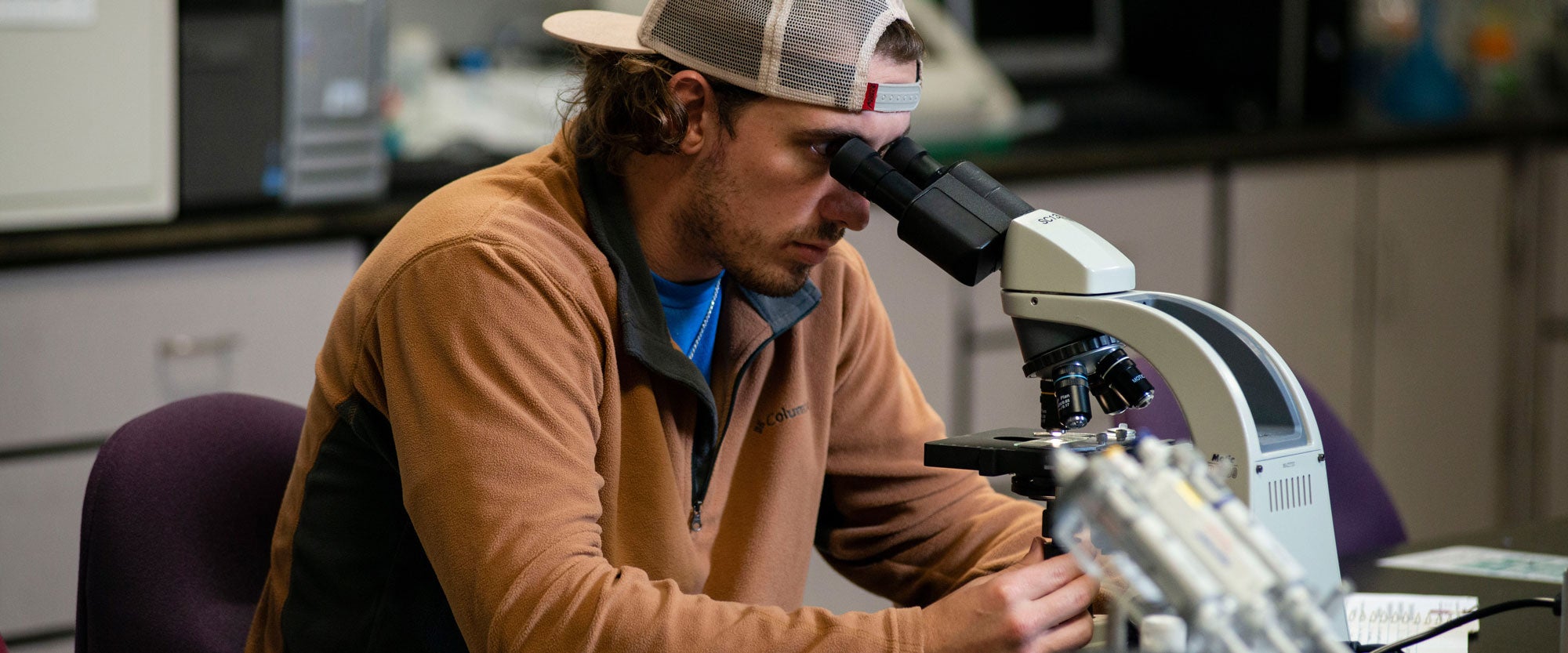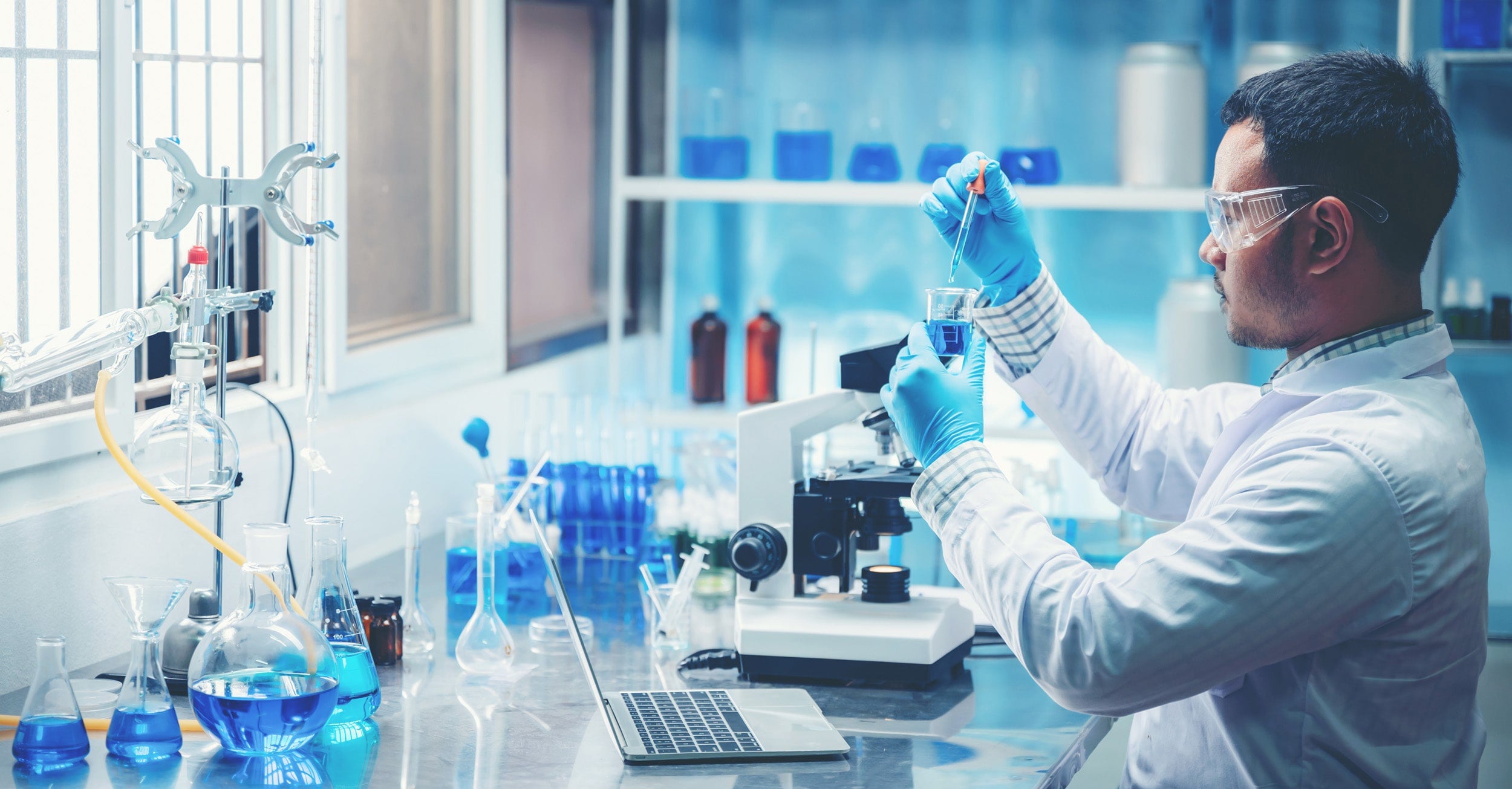Earn the only dual-accredited bachelor’s degree in biochemistry in Georgia.
Locations
- Statesboro Campus (In Person)
- Armstrong Campus (In Person)
Why Major in Biochemistry?
- Earn a bachelor’s degree from the only dual-accredited biochemistry program in Georgia.
- Work alongside world-class professors doing cutting-edge research in the field of biochemistry.
- Gain first-hand experience in biochemistry research and application.
- Learn about the fundamental building blocks of life.
Biochemists study the structure, composition and chemical properties of substances in living organisms. This means that a biochemistry degree is the gateway to a fascinating and highly technical world—one where the possibilities for scientific advancement are endless.
And, as the University System of Georgia’s only dual-accredited bachelor’s degree in biochemistry, our program is uniquely set up to launch your career in a wide array of technical fields. For students interested in medicine, pharmacology, forensics, or biotechnical engineering, a degree in Biochemistry is the perfect starting point.
Ready to Apply?
What Can You Do With a Biochemistry Degree?
A biochemistry degree prepares you for work in some of the most exciting and technical jobs out there—from medical practitioner to forensic scientist to biotechnical scientist.
Where our graduates work:
- Epicypher, Inc.
- Centers for Disease Control and Prevention
- Coram CVS/Specialty Infusion Services
- Emory University
- Memorial Health
- SNF Holding Company
What our graduates do:
- Pharmacy Technician
- Graduate Research Assistant
- Research Associate
- Scientist
- Chemist
- Lab Tech
- Quality Control Lab Technician
- Clinical Pharmacist
- Graduate Teaching Assistant
- Medical Scribe
- Research Specialist
- Resident Physician
What You’ll Learn
As a biochemistry major, you will learn modern laboratory methods, principles, and techniques using state-of-the-art scientific equipment. You’ll be immersed in an environment of critical thinking, independent and team learning, and world-class research opportunities. In particular, you’ll learn:
- The theory and knowledge of atomic and molecular structure to predict chemical properties and reactivity.
- The laboratory skills necessary to perform rigorous lab experiments.
- The quantitative skills you need to interpret and analyze data.
- The instruments commonly used in biochemistry and the skills to interpret and use data generated in instrumental analyses.
How to recognize and apply key principles of biochemistry.
See the Biochemistry CurriculumUndergraduate Research
Get involved with COUR—the College Office of Undergraduate Research in the College of Science and Mathematics, and join students and faculty who are leaders in undergraduate-faculty research.
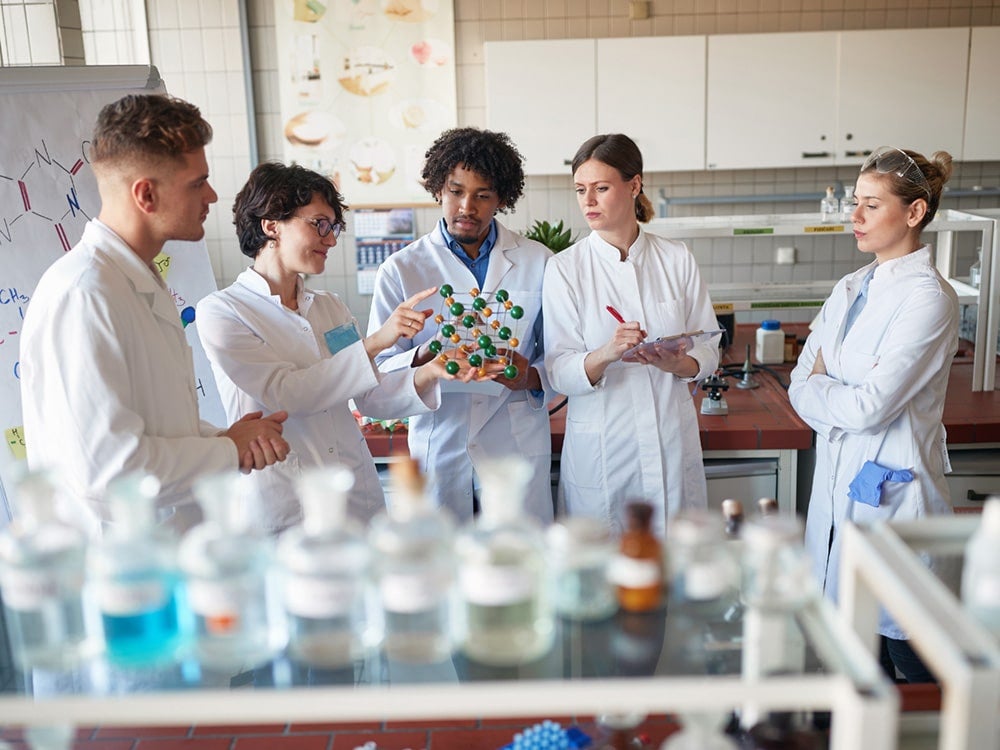
Get Involved
Georgia Southern is host to several biochemistry related student organizations, including the National Organization for the Professional Advancement of Black Chemists and Chemical Engineers and Alpha Chi Sigma.

Join EagleMed
EagleMed is Georgia Southern’s future doctoral mentoring academy that offers tailored guidance, specialized courses, and impactful professional development experiences for students interested in pursuing a career in medicine.
Take Action
Follow these steps to complete the Georgia Southern application:
- Create an application account.
- Complete our online application using the PIN you received after creating your application account.
- Once complete, pay the $30 application fee or upload a valid fee waiver. Previous Georgia Southern applicants and dual-enrollment students do not need to pay the fee.
You can check your application status at My.GeorgiaSouthern.edu/admissions three days after completing your application. This page contains live information about your admission status, including a checklist of missing documents we need to make a decision.
Apply as a First-Year Student Transfer to Georgia SouthernOur degree in Biochemistry is certified by the American Chemical Society and the program is accredited by the American Society of Biochemistry and Molecular Biology.
Find a variety of resources for planning your career from our Office of Career and Professional Development.
Explore career resources for chemists and biochemists from the American Chemical Society.
Join a unique 10-week undergraduate intensive research program with opportunities in both Georgia and France.
For those students interested in incorporating biochemistry in their education but who ultimately wish to pursue a different major, the Minor in Biochemistry is an ideal option. The minor program requires 19 credit hours in chemistry and biochemistry courses, including organic chemistry, biotechnology, biocatalysis and biochemical research.
Our program is designed to introduce students to modern laboratory methods and principles using state-of-the-art scientific equipment. Undergraduate students are exposed to applied laboratory techniques, critical thinking, independent and team learning, and are provided with research opportunities.
The faculty is committed to providing an environment that addresses the individual needs of each student and encourages them to develop their potential.
The Bachelor of Science in Chemistry programs offer students a more quantitative experience in chemistry while the concentration in Biochemistry offers students a more significant foundation in the principles of biochemistry.
Program Learning Outcomes:
- Outcome 1: Theory and Knowledge
Upon completion of the organic chemistry sequence, chemistry majors are able to recognize and apply the principles of atomic and molecular structure to predict chemical properties and chemical reactivity. - Outcome 2: Laboratory Skills
Upon completion of a degree, chemistry majors are able to employ critical thinking and scientific inquiry in the performance, design, interpretation and documentation of laboratory experiments at a level suitable to succeed at an entry-level position in the chemical industry or a chemistry graduate program. - Outcome 3: Quantitative Skills
Upon completion of a chemistry degree, chemistry majors are able to interpret and analyze quantitative data. - Outcome 4: Instrumentation
Upon completion of a BS in Chemistry degree, students are able to understand theoretical concepts of instruments that are commonly used in most chemistry fields as well as interpret and use data generated in instrumental chemical analyses.
Outcome 5: Biochemistry
Upon completion of a chemistry degree with a biochemistry concentration, students will recognize and apply key principles of biochemistry.
Faculty Feature—Dr. Mark Vincent dela Cerna
Dr. dela Cerna joined the Department of Chemistry and Biochemistry at Georgia Southern in Fall of 2022. At Georgia Southern the dela Cerna Research Group will initially focus on characterization of human protein tyrosine phosphatases (PTPs) and developing chemical probes that can be used to study their functions or be used to potentially develop therapeutics targeting disease-relevant PTPs.
More About Dr. dela Cerna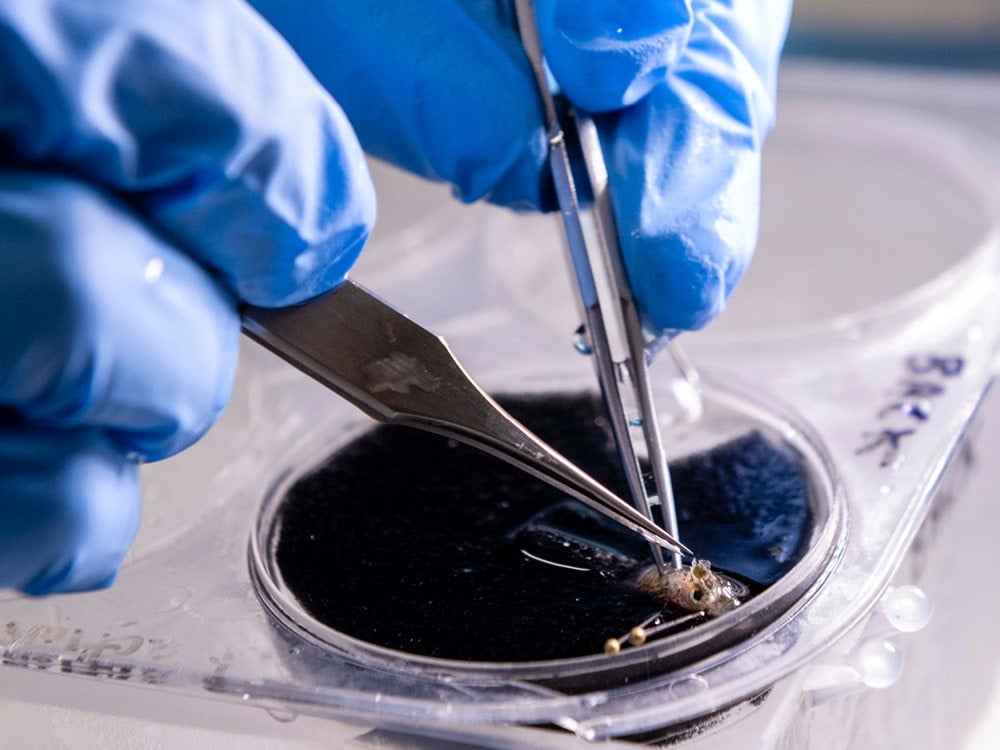

Take the Next Step
Enter the fascinating career field of biochemistry and pursue unlimited opportunities in technical and scientific advancement.
Contact Us
Department of Biochemistry, Chemistry and Physics
P.O. Box 8064
Statesboro, GA 30460
Phone: 912-478-5681
Fax: 912-478-0699
Email: bcp@georgiasouthern.edu

